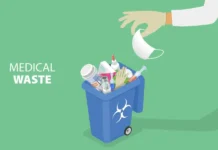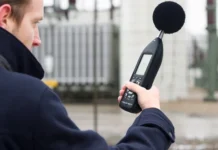Becoming a Certified Nursing Assistant (CNA) is not just about getting a license. It’s about mastering skills that will provide quality care to patients. Whether you’re just starting or you’ve been in the field for a while, these skills are like your superhero toolkit for providing top-notch care to your patients.
So, join us as we learn about these essential skills to master as a licensed CNA to stand out in the growing healthcare industry.
Effective Communication Skills
Effective communication is absolutely key in any healthcare environment, and as a licensed CNA, being able to communicate clearly is super important. Whether you’re passing on vital info to the crew or just giving a patient some support, your ability to communicate clearly can directly impact patient outcomes.
Active listening is like gold for CNAs. It means really paying attention when someone’s talking, asking questions if you need to, and showing that you get where they’re coming from. Patients and their families often have worries and questions, and being a good listener can make a big difference in making them feel better and trusting you.
Getting the communication right with patients, families, and the healthcare team is crucial. Keeping it simple, avoiding complicated medical talk, and explaining things in a way that every person can understand helps keep the communication flowing. It also makes sure everyone involved in the patient’s care is on the same page.
Basic Patient Care Skills
As a licensed CNA, you’ll be responsible for providing basic care to patients. It includes assisting with activities of daily living (ADLs) such as bathing, feeding, and toileting. Demonstrating proper hygiene practices is a must to prevent infections and maintain the overall health and well-being of patients.
When assisting with ADLs, it’s important to approach each task with sensitivity and respect for the patient’s dignity and privacy. Providing emotional support and maintaining a comforting environment can help alleviate any discomfort or anxiety that the patient may experience.
Vital Signs Monitoring and Recording
Monitoring and jotting down vital signs is the fundamental aspect of patient care. You know, those little things like temperature, pulse, blood pressure, and how fast they’re breathing – they’re like windows into a patient’s well-being. So, as a licensed CNA, grasping the importance of these vital signs and nailing down how to measure and note them properly is kind of a big deal.
Now, let’s talk technique. Getting it right when measuring vital signs is crucial for accuracy. It means using the right gear, following the standardized procedures, and timing those measurements just right. When you’re spot on with recording vital signs, it’s like you’re giving healthcare providers the superpower to spot changes in a patient’s condition and make the smartest calls about their care, pronto.
Infection Control Procedures
Infection control is a top priority in healthcare settings, and as a licensed CNA, you play a critical role in preventing the spread of infections. Proper hand hygiene is the most effective way to reduce the transmission of pathogens, so washing your hands frequently and following proper handwashing techniques is essential.
Understanding and implementing standard precautions is crucial for preventing the spread of infections. These may include wearing personal protective equipment (PPE) when necessary and following isolation protocols. Adhering to infection control procedures enables you to protect both patients and healthcare workers from harm.
Safety Protocols and Emergency Response
Safety is most important in healthcare settings, and as a licensed CNA, it’s equally important to be aware of safety measures to protect both yourself and your patients. It includes being vigilant for potential hazards in the environment and taking appropriate precautions to prevent accidents and injuries.
In the face of emergencies like falls or cardiac arrests, being able to react swiftly and efficiently can be the line between life and death. Having a grasp of basic life support (BLS) techniques, such as cardiopulmonary resuscitation (CPR), is vital for administering immediate aid until professional assistance arrives. So, while maintaining a professional demeanor, it’s also about being prepared for those critical moments with a touch of readiness in your approach.
Polish Your Skills and Snag the Best CNA Gig
Mastering these essential skills is key to success as a licensed CNA. Continuously striving to improve and expand your skillset will not only benefit you professionally but also enhance the level of care you are able to provide to those in need.
If you’re feeling adventurous while polishing these skills, consider becoming a traveling nursing assistant. With your skills in tow, you could explore new places, meet new people, and make a difference wherever you go.
Moreover, traveling nursing assistants often earn more than licensed CNAs due to the higher demand for temporary healthcare workers in various locations. They may receive compensation for travel expenses and housing, along with bonuses for working in high-need areas.
So, what are you waiting for? Polish these essential skills and get the best CNA jobs today.



































































